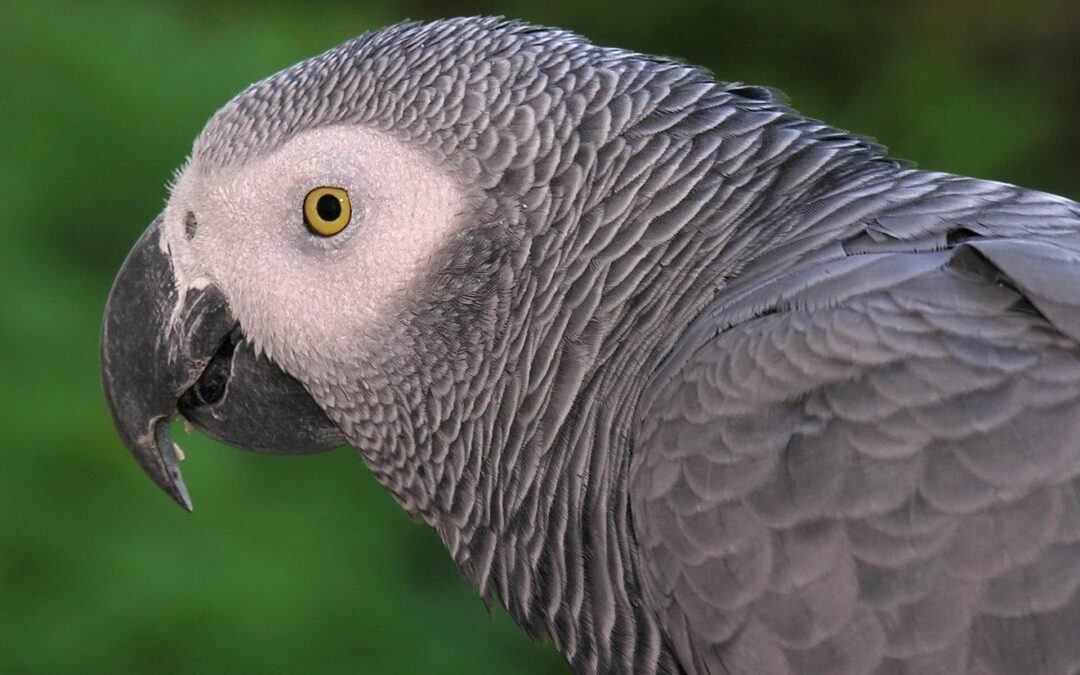Parrots speak with us in the same sense that we swim with the dolphins.

Prof. Mumblebard claims: “It goes without saying that no animal can speak any human language. Admittedly certain parrots can imitate words well enough to have some form of vocal communication with humans. Such species only achieve this if trained to do so in captivity and deprived of the company of their own species from an early age. Under such conditions, certain individuals of several species of parrots may learn a surprisingly extensive vocabulary by this mimicry. There is a biological consensus that some verbal exchanges between habituated parrots and humans are articulate beyond the capacities of, for example, the most intelligent of domestic dogs. Talking parrots may even verge on rudimentary ‘conversation’. Of course no rigorous or objective behaviourist would under any circumstance claim that ‘parrots speak English’.”
Robin and the Honey Badger respond: “On the contrary, parrots do indeed – with meaning and context – speak English as well as other human languages. This has been established implicitly in the peer-reviewed literature and deserves at last to be stated explicitly . Being intellectually honest that we’re unable to converse with parrots on their terms – whereas parrots are clearly able to converse with us on our terms – means accepting that birds can be more intelligent than humans with respect to linguistic versatility. Human failure to acknowledge this is a mental foible that might be understood by analogy with how dolphins would perceive our accomplishments in swimming. Just as parrots can master human languages to a surprising degree for animals that lack a larynx, teeth or lips, so humans can learn to swim surprisingly well for a terrestrial animal with feet extremely specialised for running. Although swimming beyond a dog-paddle is not instinctive in humans, and is learned only under certain conditions, no objective observer would deny that we swim passably in addition to running proficiently. Of course dolphins swim far more proficiently than us because they are so specialised that they are unable to step on land. So what would be the verdict of dolphins on human attempts to swim? If there were scientists among the cetaceans, it’s easy to imagine their dismissal: “It goes without saying that humans cannot swim, although certain individuals can at times – if trained patiently from an early age in contrived situations – thrash the water with surprising speed and endurance. The occasional human has even crossed the English Channel without drowning.” Subconsciously biased in this way, the imaginary dolphins of our analogy would self-deny the epiphany that ‘humans can swim’. This would preclude any realisation of one of the remarkable facts of biology: that

Click here for article by the Honey Badger on braininess in Australian parrots.
Please join us here at the Bio-edge with your own comments. In the discussion below we encourage links to any evidence supporting either Prof. Mumblebard or Robin and the Honey Badger. Illustrations are welcome but please cite all sources or we may be forced under copyright to delete your comment.
Polly want some credit now
***
Featured image: African Grey Parrot by L.Miguel Bugallo Sánchez (CC BY-SA 3.0, African Grey Parrot)

